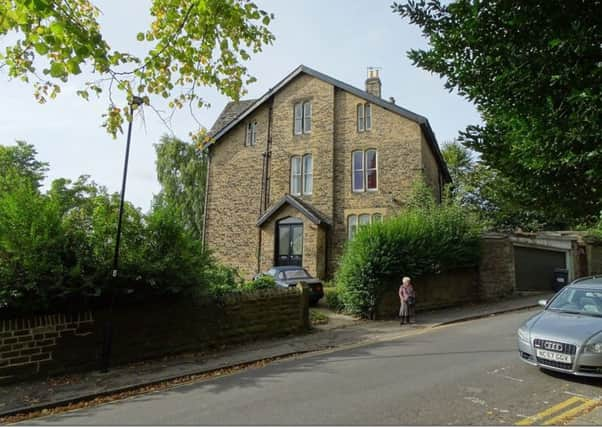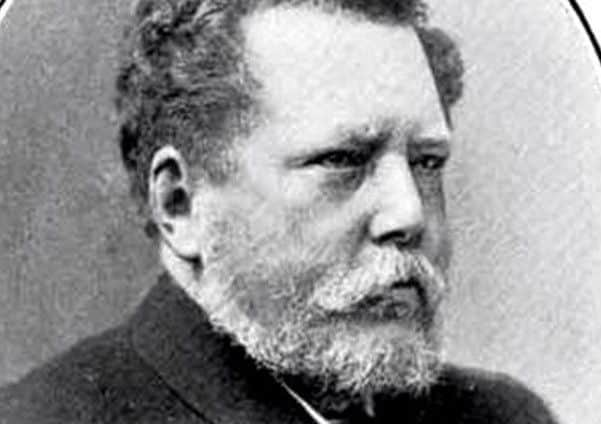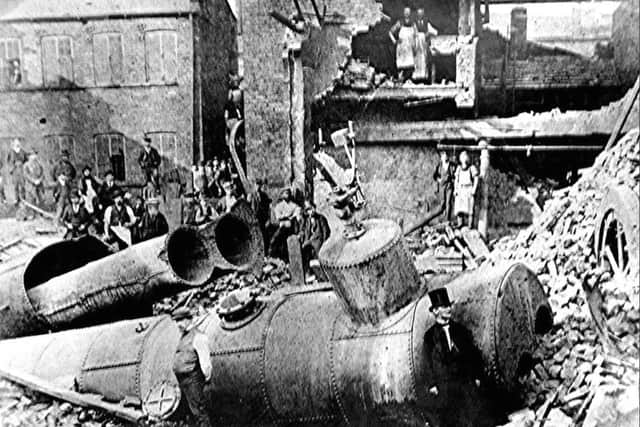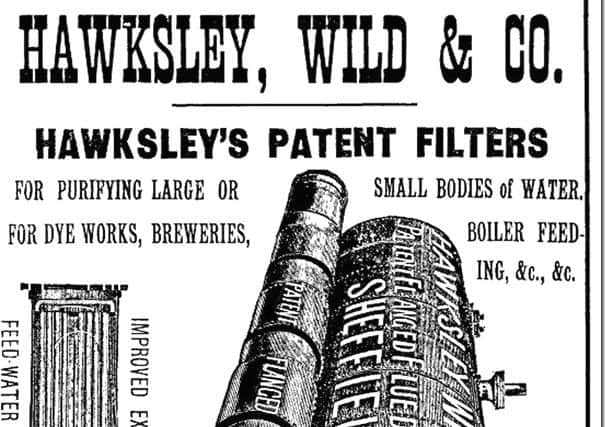Exploding boilers at a successful Steel City firm


The two arrow slit attic windows can be found if you look on the former home of George William Hawksley at the property he owned at 109 Ashdell Road.
The house was built to give an uninterrupted view of the town, his prospect has long been lost.


Advertisement
Hide AdAdvertisement
Hide AdGeorge William Hawksley was born in 1836 and he was the founder of Hawksley, Wild and Co. Businessman George was apprenticed to his uncle, who was a millwright at Owlerton in Sheffield, and who subsequently went to the Hyde Boiler Works, which was run owned by Mr Daniel Adamson.
The boiler works were situated at Birley Meadow and the business was listed as a Tilter and Forger.
While George Hawksley was engaged at Hyde Boiler Works he met Matthew Wild, who was then a foreman in the boiler works.
In 1860 these two gentlemen started the business in Sheffield, which developed into one of the most important boiler-making establishments in the country.


Advertisement
Hide AdAdvertisement
Hide AdIt was in 1862 that this he is listed as George William Hawksley & company of the Brightside Boiler Works on Brightside Lane. At this time George was living at 54 Pye Bank, but there is no mention of Mathew Wilde, strangely enough.
The two mens business was very successful and their boilers were second to none, but unfortunately poor maintenance of the boilers often resulted in the death of men just working to earn a living.
For example, one terrible event happened in Sheffield at Southern & Richardson cutlery firm, where a faulty pressure gauge resulted in the deaths of several men and youths. This boiler was a product of Hawksley & Wild.
Today the area of safety is paramount in any trade, but way back in the 19th century death and injury were an ever-present danger for our forefathers in the foundries and factories around Britain.


Advertisement
Hide AdAdvertisement
Hide AdIt seems that safety was often compromised in order to turn a profit and there was little regulation or legislation to protect workers. Sadly, accidents, such as boiler explosions, were commonplace and many unfortunate people lost their lives or were maimed.
One such event in the Black Country occurred on the January 20 in the year 1903 when a second hand boiler exploded, a report into this accident is as follows.
A boiler explosion occurred at Bradley, near Bilston, on the 20th of January, which had attracted a great deal of attention, because it was stated that the boiler was new and the explosion was exceptionally violent and fatal.
We give the report which we have received from our representative, who was given every facility for obtaining information. At the moment comment on this accident of any kind would be out of place.


Advertisement
Hide AdAdvertisement
Hide AdThe explosion of a boiler occurred at the sheet-iron works of Messrs Tupper and Co, Batman’s Hill. It concerned a second-hand Cornish boiler about 80ft long and 6ft in diameter. The body of the boiler shell was made up of nine rings. The age of the boiler, according to some accounts, was more than 22 years old. Makers, Hawksley, Wild and Co, Brightside, near Sheffield. A boiler was under steam for first time after setting in position by the present owners. It was sold by Thomas Ward, of Sheffield, who was a second-hand dealer.
It was said to have been passed for 60 lb pressure by the Vulcan and Scottish Boiler Insurance Companies. However, Vulcan since say this was not true. The owners intended to use boiler at 45 lb pressure. At the time of the accident it was declared that there was only 40 lb pressure per sq in.
Parts of its flue and end plate were blown clear of the works and to a considerable distance. The brick stack serving the boiler fell and caused some of the injuries. No explanation was given as to the cause of the explosion, but I am inclined to attribute it solely to wasting of flue tube and an inability to withstand the steam pressure to which it was subjected.
The report does not name those killed in the explosion. The works manager, James Warren and engine driver, Harry Southall, were killed instantly, while furnace man Richard Cooper and roller Edward Holloway later died of their injuries in hospital.
Advertisement
Hide AdAdvertisement
Hide AdThere was an official investigation into the accident and afterwards the accident was scathing of the sorry catalogue of incompetence and negligence that led to the explosion.
The boiler was made by Messrs Hawksley, Wild and Co in 1882 for Messrs Howell and Co, Sheffield Steel Works. This firm, increasing their pressure, sold the boiler in 1902 for scrap price for around £39 to Messrs Hoult, iron and steel merchants, who bought it to re-sell it. This they failed to do. It lay outside on a bit of waste ground by the side of the railway for some months and, in August 1902, it was bought by Mr Padmore, the manager for a Mr Ward, who did a large trade in second-hand boilers. In November 1902, Messrs Tupper and Co contemplated enlargements and, wanting more boilers, applied to Mr Ward. The result was the purchase of the boiler. The boiler was never properly inspected by anyone after its installation, no pressure test, nothing.


Four working men died and another 20 were injured because a worn-out scrap boiler was installed and then blew up the first time it was used. A £50 fine for the company bosses seems scant justice, so the company only had their hands slapped while the families of the dead and injured received scant compensation if any, an utter disgrace against the working man. Hawksley Wild & Co were not to blame in any way whatsoever for the explosion. George passed this life on November 30, in the year 1909.